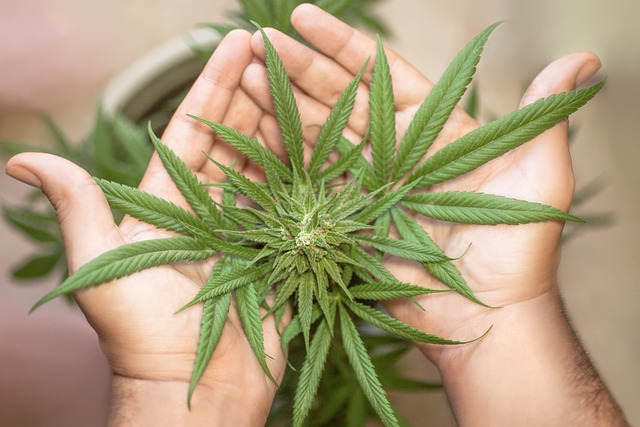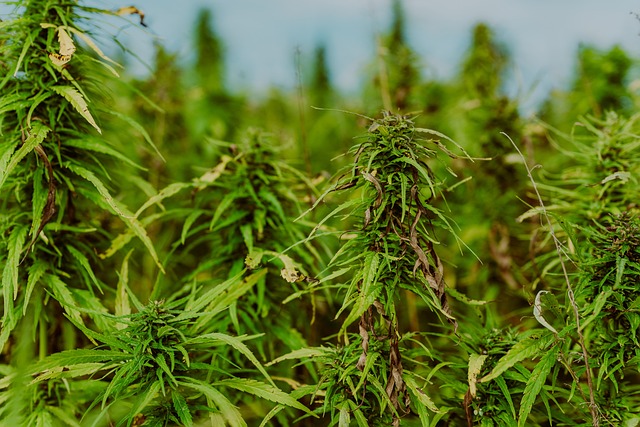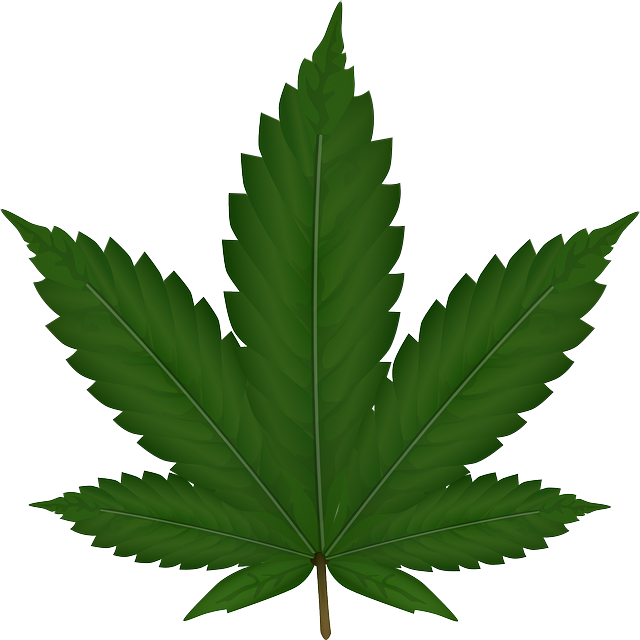15 states across the U.S., including Connecticut, have legalized recreational cannabis, with a focus on THCA's therapeutic benefits. THCA, the non-psychoactive precursor to THC, is gaining recognition for its wellness applications and natural remedy properties, particularly for pain management and anti-inflammatory effects. In Connecticut, consumers can access THCA legally through various forms like flowers, vaporizing, and edibles. The state's evolving legal framework supports the use of THCA within strict regulatory guidelines, ensuring that its therapeutic potential is available while maintaining legal compliance. Consumers interested in THCA should stay informed about Connecticut's specific regulations, as the legality of THCA is nuanced due to its relationship with cannabis and hemp under federal law. The state's commitment to exploring cannabis's therapeutic properties means that THCA's role in wellness and medical applications is set to expand, provided its legal status continues to evolve responsibly.
Exploring the therapeutic potential of cannabinoids, this article delves into the emerging benefits of THCA flower, particularly within the context of wellness practices. As a non-psychoactive compound found in the cannabis plant, THCA (tetrahydrocannabinolic acid) is gaining attention for its therapeutic properties, which are distinct from its psychoactive counterpart THC (tetrahydrocannabinol). With Connecticut’s evolving legal landscape regarding hemp-derived products, understanding the compliance aspects of incorporating THCA flower into one’s wellness routine is crucial. This piece will guide readers through the science behind THCA, its legal status in Connecticut, and the myriad ways it can be utilized for potential health benefits. We will examine the differences between THCA and other cannabinoids, the entourage effect, and the various methods for sourcing and consuming THCA flower. Additionally, we’ll address dosage and safety considerations, the role of decarboxylation in activating its effects, and real-life user experiences. As research continues to unfold, this article aims to provide a comprehensive overview of THCA flower, its potential health implications, and how to legally access it in Connecticut.
- THCA Flower: An Overview of Its Emerging Role in Wellness
- Understanding THCA: The Cannabinoid with Potential
- THCA Legal Status in Connecticut: A Compliance Guide
THCA Flower: An Overview of Its Emerging Role in Wellness

15 states, including Connecticut, have legalized the recreational use of cannabis, and within this evolving landscape, the therapeutic potential of tetrahydrocannabinolic acid (THCA) flower is gaining attention. THCA, the raw form of THC found in the cannabis plant, is recognized for its wellness benefits without the psychoactive effects associated with its decarboxylated counterpart, THC. The emergence of THCA flower as a wellness tool reflects a broader shift towards plant-based remedies and natural alternatives to traditional medicine. In Connecticut, where the legal status of cannabis continues to evolve, THCA flower is being explored for its benefits in managing pain, reducing inflammation, and potentially offering neuroprotective properties. Consumers and wellness enthusiasts are increasingly turning towards this non-psychoactive variant as a means to harness the plant’s therapeutic qualities without the mind-altering effects, highlighting its growing role in complementary and alternative medicine practices.
The interest in THCA flower is not limited to its legal status but extends to its versatile usage forms. Whether smoked, vaporized, or infused into edibles, THCA offers a range of consumption options that cater to diverse preferences and needs. In Connecticut, where the legal framework for cannabis products is being refined, discerning consumers are encouraged to stay informed about the latest regulations regarding THCA flower possession, purchase, and use. As awareness of its benefits grows, so does the availability of high-quality THCA flower, ensuring that those interested can explore its wellness properties in a legally compliant manner.
Understanding THCA: The Cannabinoid with Potential

Delta-9 tetrahydrocannabinol (THC) is well-known for its psychoactive effects, but there’s another cannabinoid in the cannabis plant that has garnered attention for its potential therapeutic benefits: tetrahydrocannabinolic acid A (THCA). This non-psychoactive precursor to THC is found abundantly in raw cannabis plants and certain cannabis extracts. Research suggests that THCA may offer a range of health benefits, including anti-inflammatory, neuroprotective, and analgesic effects. Unlike its psychoactive counterpart, THCA does not produce the ‘high’ associated with cannabis use, which makes it an attractive option for individuals seeking the potential wellness benefits without mind-altering side effects.
As of the knowledge cutoff in 2023, the legal status of THCA varies across different states and countries. In Connecticut, for instance, the legislature has made distinctions between various cannabinoids. The Connecticut General Statutes define the possession and sale of cannabis with a THC concentration of more than 0.3% as illegal under federal guidelines. However, THCA itself is not explicitly addressed in state legislation, which can lead to some confusion regarding its legal status. It’s important for consumers to stay informed about the evolving legal landscape surrounding cannabinoids like THCA. As research continues to uncover more about THCA’s potential health benefits and its legal status becomes clearer, it may play an increasingly prominent role in the wellness and medical fields, particularly in states like Connecticut where there is a growing interest in the therapeutic properties of cannabis and its derivatives.
THCA Legal Status in Connecticut: A Compliance Guide

In Connecticut, the legal status of THCA, or tetrahydrocannabinolic acid, a non-psychoactive precursor to THC found in raw cannabis, has been a subject of interest and clarification. As of the latest updates, state laws allow for the use of cannabis products that contain THCA, provided they comply with the state’s regulations. These regulations are stringent and designed to ensure that only legal, regulated cannabis products are sold and consumed within the state. For those interested in the therapeutic potential of THCA, it is crucial to understand that it must be derived from hemp with less than 0.3% THC on a dry weight basis to be legal under federal law as per the 2018 Farm Bill. In Connecticut, products containing THCA must adhere to these federal guidelines and also align with the state’s medical or adult-use cannabis programs if they contain higher levels of THC. Consumers in Connecticut should always verify that any product they are purchasing is compliant with both state and federal regulations to avoid legal complications. Retailers, manufacturers, and distributors must navigate these regulations carefully to ensure their products are legally permissible and safely accessible to consumers.
In recent times, the conversation around cannabis and its derivatives has been steadily evolving, with THCA (Tetrahydrocannabinolic Acid) gaining attention for its potential wellness benefits. This article has delved into the multifaceted nature of THCA, providing a comprehensive overview of its emerging role in health and wellness, shedding light on its unique properties, and addressing the legal landscape surrounding its use, particularly in Connecticut. As THCA continues to be explored for its therapeutic potential, it is clear that staying informed about its legal status, as outlined in our compliance guide for Connecticut, is crucial for individuals interested in incorporating this cannabinoid into their wellness routine. With a clear understanding of both the benefits and regulations surrounding THCA, enthusiasts and professionals alike can engage with this promising compound responsibly and knowledgeably.
